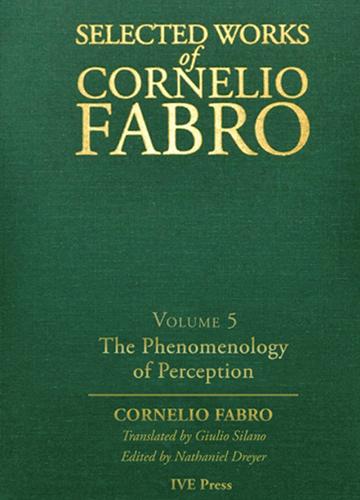Selected Works of Cornelio Fabro, Volume 5: The Phenomenology of Perception.
The Cornelio Fabro Cultural Project is pleased to present the English translation of La fenomenologia della percezione, Cornelio Fabro's masterful study of the psychology of perception in light of Thomistic philosophy and modern psychology studies. This translation has followed Fabro’s original text as closely as possible.
In the author's preface, Cornelio Fabro lays out the task of this book: “Are the claims that Gestalttheorie has made in this first half of the century, in every area of knowledge and life, justified or not? It is not yet easy to give a definitive assessment of this question. A few years ago an impartial psychologist replied: “Frankly, no one knows at present. Perhaps by 1950 we shall be in a position to answer with greater confidence. The safest guess would probably be that the Gestalt theory is at least partly correct, and with even more certainty we can say that some of it must be wrong. One of the major tasks of the coming decade will be to help specify this judgment. Now 1950 has come and gone, and it can be accepted that “form theory” has had a decisive task in the history of culture: all the theories of perception of the most recent psychology in some way have their roots in the problems aroused by Gestalttheorie. It is true that in the last two decades study has turned towards principles of synthesis that are more in keeping with the originality of the human being: but such principles do not intend to exclude the problems of the psychology of form, except for what it contained that was gratuitous and unilateral, confirming that the processes of the spirit actualize, on every object level, a principle of unity which is, at its base, the very unity of the being of consciousness. Our previous exposition has been updated here both in the bibliography and in the content on the essential points, without altering the original plan of the work.”

